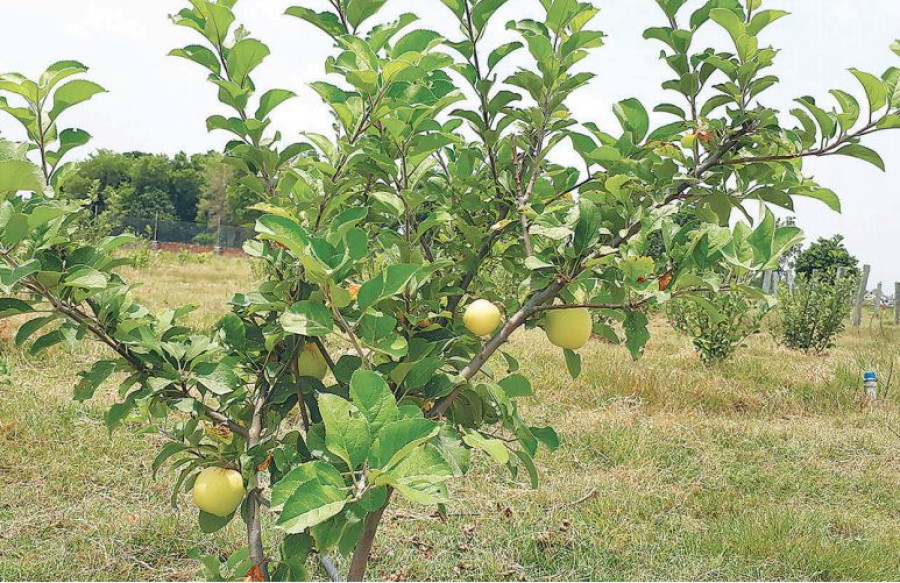Money
Growing apples in the Tarai? Innovative farmer shows it can be done
Gurung’s Lumbini Organic Farm and Research Centre produces 28 kinds of fruits.
Sanju Paudel
Apple farmers in Nepal’s northern Himalayan region smile when there is a good spell of snowfall in the winter as they know that their fruit trees will produce bumper harvests.
The fruit has been grown in the cold Himalayan region for centuries because the crop needs chill hours to prosper. But now innovative farmers are growing apples in the hot Tarai plains of southern Nepal too by planting a climate tolerant variety from Australia.
Asha Gurung of Siddharthanagar Municipality has proved that apples can be grown in warm climates too. Gurung’s success could popularise apple farming throughout the Tarai region.
The summer heat in Bhairahawa frequently reaches over 40 degrees Celsius and it stays hot at night. Despite these challenges, the 51-yearold Gurung has grown 550 apple saplings. Gurung grows a special species called ‘nano apples’ whose seeds were imported from Australia.
Gurung’s ancestors all served in the British Army. He had wanted to follow in their footsteps, but he was not selected. He went to Germany at a young age and engaged in fruit and vegetable farming. After 20 years, he came back to Nepal and started a restaurant business.
But his skills lay in fruit and vegetable farming, and this is where he proved himself. Gurung set up Lumbini Organic Farm and Research Centre where he grows 28 kinds of fruits like apple, dragon fruit, strawberry, guava, blueberry, mulberry, orange, sweet orange cherry and lemon, among others.
Moreover, his 6-bigha vegetable and fruit orchard has turned into an agro tourism site with hundreds of people travelling to his farm to observe his new experiment.
“The lockdown prevented people from visiting my orchard. I had to watch my fruits rot too,” said Gurung. “But I hope everything will be normal and my fruits will get proper market prices.”
For the last two years, he has been growing vegetables and fruits. “I have a commitment to do something new in agriculture,” said Gurung. He said that his apple trees had yielded fruits in the first year. He expects that each tree will produce 25 kg of apples from next year, and productivity may grow to 100 kg in the third year.
Gurung had been warned by agro technicians that it would be a waste of money and time to grow apples in the Tarai region because the fruit needs low temperatures, but he was determined.
Gurung said he spent a lot of time conducting soil tests on his farm before planting fruit saplings in order to ensure productivity.
According to him, apples in the Himalaya region start flowering in December while the ‘nano’ variety flowers in January and ripens in May.
“I don’t think it will be difficult for me to find a market for my fruits when my orchard begins production in a full fledged manner,” said Gurung.
He has even grown pears by importing seeds from Indonesia which can produce fruits weighing up to a kilo. Gurung grows 50 varieties of vegetables ranging from American cucumber to Thai eggplant and Chinese spinach to Shimla mirch or capsicum.
He has planted hybrid varieties as they produce greater yield, he said. Gurung was earning Rs400,000 monthly from his farm before the lockdown.




 9.89°C Kathmandu
9.89°C Kathmandu















